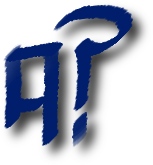Mandarin question particles 吗, 呢, 吧
The three most common question particles in Mandarin Chinese are 吗 (ma), 呢 (ne) and 吧 (ba). All three can be used to form questions when placed at the end of a sentence.
Like all Mandarin particles, these are pronounced in neutral tone, which should be light and quick.
The situations in which each particle should be used are slightly different, and learning to use them appropriately is important.
吗 (ma)
This is the most basic Mandarin question particle. It converts statements into simple ‘yes / no’ questions, and is often the equivalent of swapping the position of the subject and verb in English. These questions are also known as polar or binary questions.
Examples
- → 你是中国人吗? (Nǐ shì zhōngguórén ma?): ‘Are you Chinese?’
- → 这是他的吗? (Zhè shì tāde ma?): ‘Is this his?’
- → 她踢足球吗? (Tā tī zúqiú ma?): ‘Does she play football?’
呢 (ne)
This particle isn’t limited to simple ‘yes / no’ questions - it can be used to make more open enquiries. It has two uses for forming questions: reciprocal questions and queries.
Reciprocal questions with 呢
呢 can be used to return a question that the speaker has just been asked. This use relies entirely on context.
Examples
Speaker A has just asked ‘你身体好吗?’ (Nǐ shēntǐ hǎo ma?) - ‘Are you well?'. After answering the question, Speaker B could add:
- 你呢? (Nǐ ne?): ‘And you?’
- 你妈妈呢? (Nǐ māma ne?): ‘And your mother?’
- 你家人呢? (Nǐ jiārén ne?): ‘And your family?’
Queries with 呢
This use is closely related to asking reciprocal questions, but isn’t completely the same. 呢 is sometimes equivalent to ‘what about’ or ‘what actually’ in English.
Examples
- 我呢? (Wǒ ne?): ‘What about me?’
- 这是什么呢? (Zhè shì shénme ne?): ‘What actually is this?’
The 呢 particle has other uses, but this article will just look at its use for forming questions.
吧 (ba)
This particle is used to form tag questions. These are used after a statement that the speaker thinks is correct, but would like to confirm. This is the equivalent of adding an inverted form of the question to the end of the sentence in English, or following a statement with ‘…right?'.
Examples
- 你叫小王吧? (Nǐ jiào Xiǎowáng ba?): ‘Your name is Xiaowang, isn’t it?’
- 你吃素吧? (Nǐ chīsù ba?): ‘You are a vegetarian, right?’
- 她是老师吧? (Tā shì láoshī ba?): ‘She’s a teacher, isn’t she?’
You can also translate the English ‘right?’ more literally as ‘对吧?’ (duì ba?).
Again, 吧 has other uses besides asking questions, but these are not covered here.
A quick summary of 吗, 呢 and 吧
- 吗 (ma): for asking ‘yes / no questions’ (also known as polar questions).
- for reciprocal questions.
- for queries.
- for tag questions.

